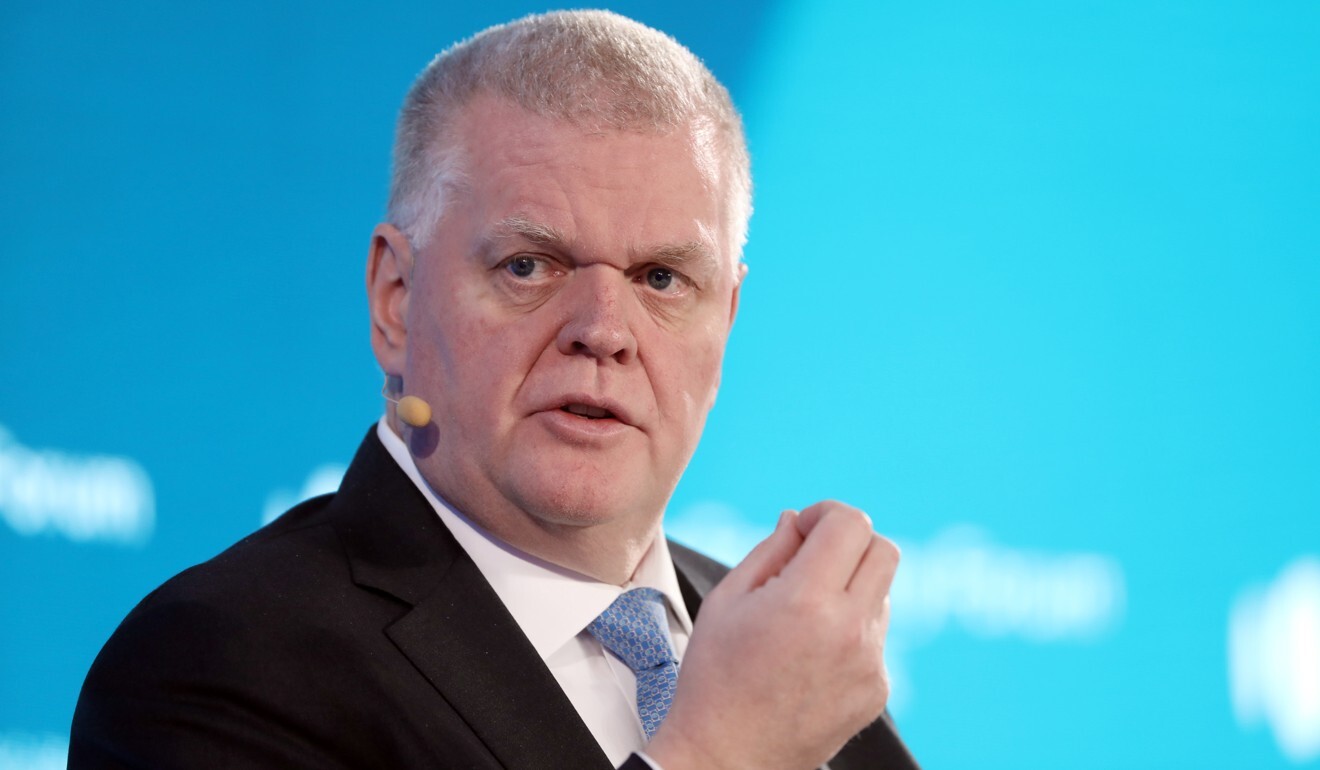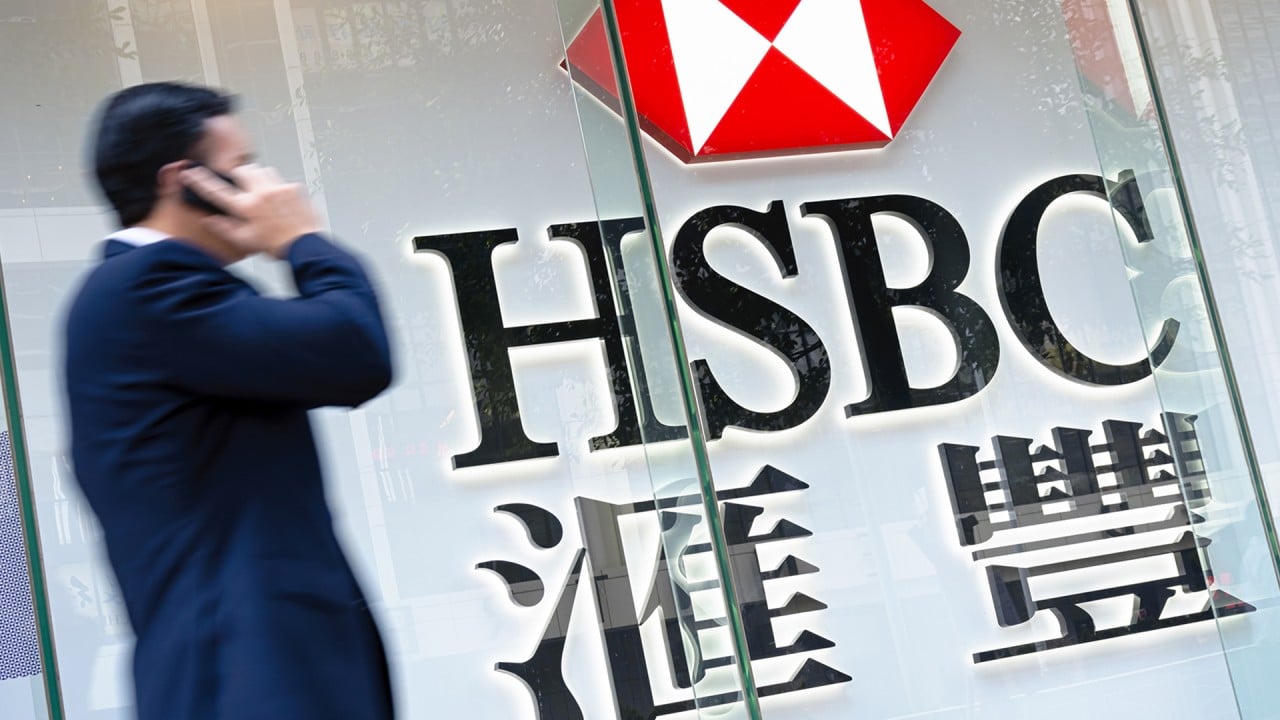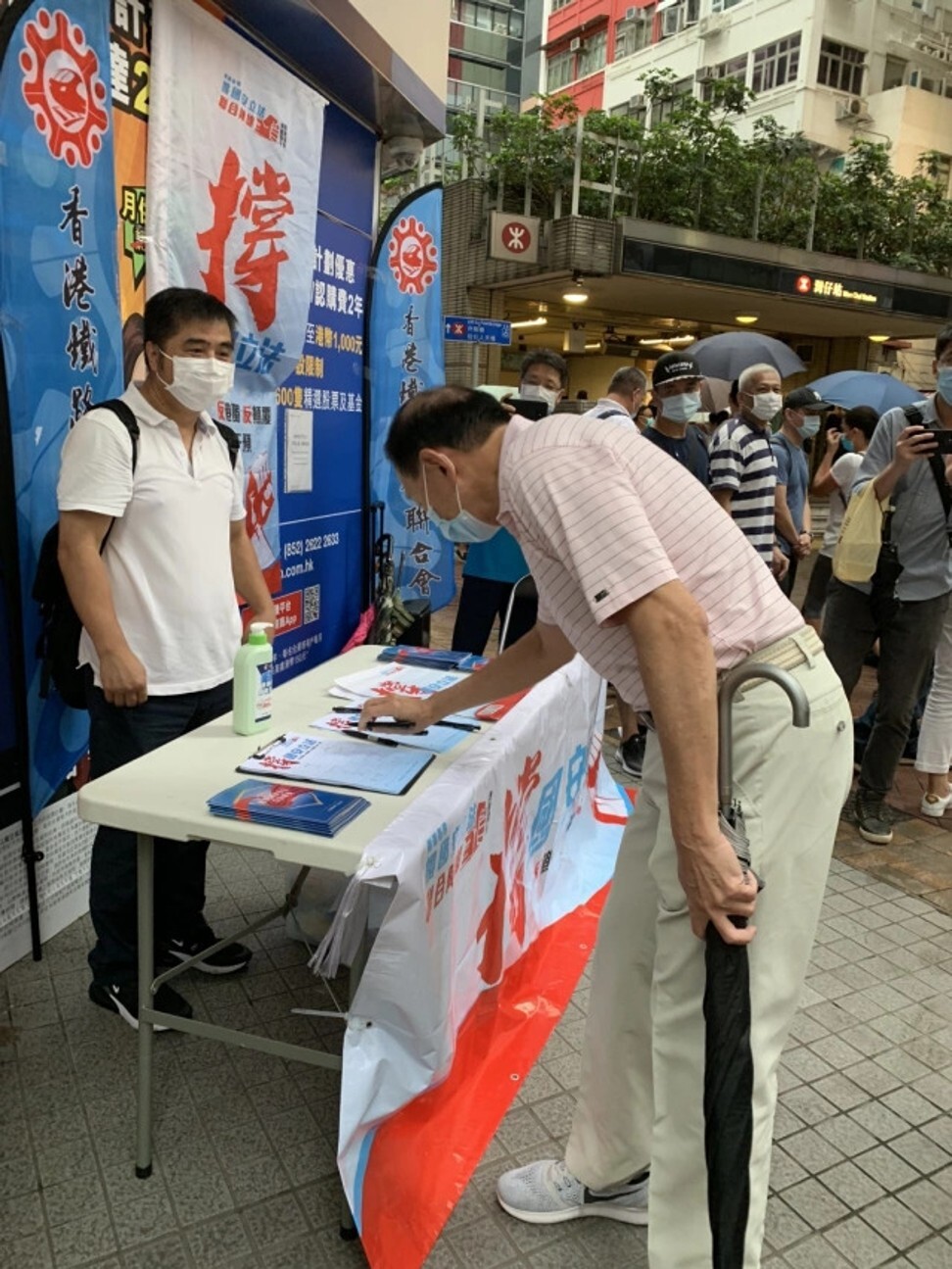
Does HSBC need its US business? Bank says yes, some investors call for a break-up
- Navigating worsening US-China relations, CEO Noel Quinn says there is still a place for global international banks with large footprints
- Some brokers in Hong Kong have called for HSBC to focus on its Asia business over other troubled markets
The ad campaign is long gone, but Europe’s biggest lender by assets continues to take pride in its vast international footprint, despite generating the bulk of its profit in Asia.
The US business has been a “monumental headache” for HSBC for years, forcing the lender to spend billions of dollars on compliance to stay on the right side of US regulators, said Francis Lun Sheung-nim, chief executive of Geo Securities in Hong Kong. The bank should be split in two, between its Asian operations and the rest of the world, he said.

02:05
HSBC sees second-quarter profits plunge by 82 per cent thanks to coronavirus
HSBC has declined to comment on the accusations.
“They turn away so much business. It really hampers their ability to expand,” said Lun, who personally owns 400 shares in HSBC. “It’s the same story for all the major international banks. The US government is killing them off one by one.”

Much of the revamp will focus on shrinking underperforming operations in America and Europe and reallocating capital to growth markets such as Hong Kong and mainland China. In the first half of this year, Asia accounted for 55 per cent of its operating income before provisions, and nearly all of its pre-tax profit.
Despite Asia’s outsize contribution, chief executive Noel Quinn said the US operations remain a necessary cog in its business. It just needs to be smaller and more focused, he added.
“We remain a global international bank. We don’t have any plans to revert to being a pure regional bank,” Quinn said during its interim results presentation last month. “There is a role for an international bank, particularly one that is capable of bridging the East and the West.”
In the US, HSBC is one of the primary dealers to the Federal Reserve, making it a counterparty to the central bank when it enacts monetary policy. HSBC is also one of the five biggest clearers of cross-border dollar transactions globally, and has been the sole settlement institution for dollar clearing in Hong Kong since 2000.
There’s still value for HSBC in maintaining an American wholesale banking presence, given the importance of dollar as a trade currency, according to Michael Wu, a senior equity analyst at Morningstar in Hong Kong.
“Close to 30 per cent of HSBC’s global outbound revenue is derived from the US,” he wrote in a report. “Further, the bank serves as a large US dollar clearing agent, mostly for its own customers, and acts as a valuable source of low-cost retail deposit funding.”

04:41
HSBC doubles down on Asia in massive staffing overhaul
So far, Quinn said the bank’s management is pleased with the progress of the US unit’s turnaround.
The US unit reported a US$97 million pre-tax profit in the second quarter versus losses in the past two quarters. Its revenue was the highest since the final quarter of 2017.
“They’ve managed to retain 85 per cent of the deposit base in doing that,” Quinn said. “They’ve already reduced their headcount significantly. Still much to do, but progressing well.”
Some local brokers, however, remain leery of HSBC’s commitment to the US market, particularly after it was fined US$1.9 billion in 2012 for breaking anti-money-laundering and sanctions rules.
“HSBC earns the most money in Hong Kong and Asia, while it paid the [biggest] monetary penalty in the US,” said Cheung Tin-sang, an 82-year-old broker at Luk Fook Securities (HK). “It is not fair to its Hong Kong depositors and shareholders.”
Shareholders would benefit if the bank withdrew from the US and focused on its greater China markets, according to Tom Chan Pak-lam, chairman of the Hong Kong Institute of Securities Dealers.

For global banks like HSBC, a misstep in handling the sanctions could have severe consequences.
The Hong Kong Autonomy Act allows US regulators to sanction foreign banks and their executives if they engage in “significant transactions” with individuals deemed to have helped end the city’s “high degree of autonomy”. That can include a ban on serving as a primary dealer, as well as restrictions on executives travelling to the US.
At the same time, Hong Kong’s national security law prohibits sanctions, blockades or other hostile actions against the city or mainland China. It also is extraterritorial, meaning it applies to wrongdoings outside Hong Kong.
The argument to keep the US operations is “a lot weaker” since HSBC unveiled its restructuring in February, said Fahed Kunwar, an equity analyst at Redburn. Lower interest rates, pressure on returns and a fragile political environment are limiting its ability to reshape the business.
“They don’t want to make any big move in the US right now while the atmosphere is as fragile as it is between China and US relations and they’re sitting in the middle of it,” Kunwar said. “You could easily see the current US administration saying we’re going to take the dollar clearing licence away. That would become almost existentially threatening to HSBC.”


